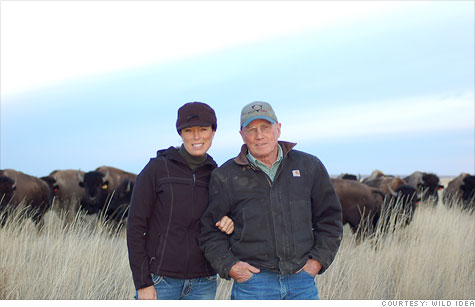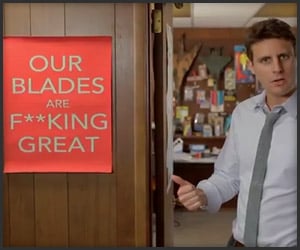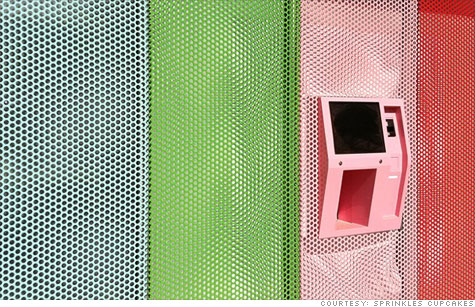More than a decade ago, Daniel Suelo closed his bank account and moved into a desert cave. Here's how he eats, sleeps, and evades the law.
"Our whole society is designed so that you have to have money," Daniel Suelo says. "You have to be a part of the capitalist system. It's illegal to live outside of it."
Suelo has defied these laws. His primary residence is the canyons near Arches National Park, where he has lived in a dozen caves tucked into sandstone nooks. In the fall of 2002, two years after quitting money, he homesteaded a majestic alcove high on a cliff, two hundred feet across and fifty feet tall. Sitting inside and gazing into the gorge below felt like heralding himself to the world from inside the bell of a trumpet.
Suelo's grotto was a two-hour walk from pavement, and he settled in for the long haul. He chipped at the rocky ground to create a wide, flat bed, and lined it with tarps and pads and sleeping bags that had been left out with someone else's trash. He built wood-burning cook-stoves from old tin cans. He learned to forage for cactus pods, yucca seeds, wildflowers, and the watercress that grew in the creek. He drank from springs, bathed in the creek. From a chunk of talus he carved a statue, a ponderous head like some monolith from Easter Island.
In warm months the cave attracted occasional hikers, and when Suelo was away, he left a note. Feel free to camp here. What's mine is yours. Eat any of my food. Read my books. Take them with you if you'd like. Visitors left notes in return, saying they were pleased with his caretaking.
Then one day, after several years of peace, a ranger from the Bureau of Land Management arrived to evict him. Suelo had long since violated the fourteen-day limit.
"If I were hiking along here and I saw this camp," said the ranger, "I'd feel like I wasn't allowed here, that it was someone else's space. But this is public land." The ranger wrote a ticket for $120.
"Well, I don't use money," Suelo said. "So I can't pay this." Not only did he not use money, he had discarded his passport and driver's license. He had even discarded his legal surname, Shellabarger, in favor of Suelo, Spanish for "soil."
The ranger felt conflicted. He'd spent years chasing vandals and grave robbers through these canyons; he knew that Suelo was not harming the land. In some ways, Suelo was a model steward. The ranger offered to drive him to the next county to see a judge and resolve the citation.
The next day, these odd bedfellows, a penniless hobo and a federal law enforcer, climbed into a shimmering government-issue truck and sped across the desert. As they drove, Suelo outlined his philosophy of moneyless living while the ranger explained why he had become a land manager-- to stop people from destroying nature. "And then someone like you comes along," he said, "and I struggle with my conscience."
They arrived at the courthouse. The judge was a kindly white-haired man. "So you live without money," he drawled. "This is an honorable thing. But we live in the modern world. We have all these laws for a reason."
Suelo hears this all the time: that we're living in different times now, that however noble his values, their practice is obsolete. He even heard it once when he knocked on the door of a Buddhist monastery and asked to spend the night, and a monk informed him that rates began at fifty dollars. The Buddha himself would have been turned away, Suelo observed.
"We're living in a different age than the Buddha," he was told. But Suelo simply doesn't accept this distinction.
To the Utah judge casting about for an appropriate sentence, Suelo suggested service at a shelter for abused women and children. They agreed on twenty hours. Suelo volunteered regularly at the shelter anyway, so the punishment was a bit like sending Brer Rabbit back to the briar patch. And within a few weeks of eviction from his grand manor, he found a new cave, this time a tiny crevice where he would not be discovered.
It's tempting to conclude that Suelo's years in the wilderness have transformed him into a crusader for the earth. And clearly his lifestyle has a lower impact than virtually anybody else's in America. Without a car or a home to heat and cool, he produces hardly any carbon dioxide. Foraging for wild raspberries and spearfishing salmon has close to zero environmental cost--no production, no transportation. And although food gathered from a dumpster must be grown and processed and shipped, rescuing it from the trash actually prevents the further expenditure of energy to haul and bury that excess in a landfill.
Suelo brings into existence no bottles, cans, wrappers, bags, packaging, nor those plastic six- pack rings that you're supposed to snip up with scissors to save the seabirds. As for the benefits of pitching Coke bottles into the recycling bin-- Suelo is the guy pulling those bottles out of the bin, using them until they crack, then pitching them back. The carbon footprint of the average American is about twenty tons per year. Suelo's output is probably closer to that of an Ethiopian-- about two hundred pounds, or about one half of 1 percent of an American's.
"He wants to have the smallest ecological footprint and the largest possible impact at improving the world," says his best friend, Damian Nash. "His life goal since I met him is to take as little and give as much as possible."
That said, Suelo constantly rethinks and interprets the rules of living without money. In the spring of 2001, Suelo had his one major lapse. While staying at a commune in Georgia, wondering how he was going to get back to Utah for a friend's wedding, a most tempting and confounding piece of mail arrived: a tax return in the amount of five hundred dollars. "This experiment of having no money is on hold now," Suelo wrote in a mass email to friends and family. He cashed the check, paid the deposit on a drive- away car, and blasted across America at the wheel of a brand- new, midnight- blue, convertible Mercedes-Benz 600 sports coupe.
"What a kick it is to go from penniless hitchhiker to driving a Mercedes!" he wrote. "I got a deep breath of the southern U.S. all the way to New Mexico, riding most the way with the top down. On top of that, I get so much pleasure seeing the look on hitch-hikers' faces when a Mercedes stops for them." Later that summer he ditched the remainder of the money "because it felt like a ball and chain," and has not returned to it since.
Suelo's quest for Free Parking might be easy if he availed himself of government programs or private homeless shelters. But Suelo refuses these charities as by-products of the money system he rejects. He does, however, accept hospitality that is freely given. He has knocked on the door of a Catholic Workers house, a Unitarian church, and a Zen center, and has been offered a place to sleep. He has spent time in a number of communes, including one in Georgia where members weave hammocks to provide income, and another in Oregon where residents grow their own vegetables. In Portland, Oregon, he stays at urban squats populated by anarchists, or in communal homes that welcome transients.
Suelo is also welcomed by family, friends, and complete strangers. He has lost count of the times someone picked him up hitchhiking, then brought him home and served him a meal. A Navajo man gave his own bed to Suelo and slept on the couch, then in the morning treated him to breakfast. Through two decades in Moab, Suelo has developed a reputation as a reliable house sitter. In a town of seasonal workers who often leave home for months at a time, his services are in high demand.
Even with all the roofs offered, Suelo spends the majority of his nights outdoors. He camps in wilderness, the red rock country around Sedona, Arizona, or the Gila of New Mexico, where he spent a few weeks learning survival skills from a hermit. One summer, Suelo commandeered a piece of plastic dock that had floated down the Willamette River, in the heart of Portland, and paddled it to the brambles of the undeveloped island. "I had visions of building a cob house," he says, but that didn't pan out.
He spent another summer in the woods by Mount Tamalpais, just north of San Francisco. He dropped his pack just thirty feet from a trail and lived undetected in the heart of one of the wealthiest zip codes in America. He spent a month camped in a bird refuge on the University of Florida campus in Gainesville. Turns out there are plenty of places to sleep free in America: you just have to know where to look.
Adapted from Mark Sundeen's The Man Who Quit Money [HT -
MadConomist]
Labels: books
















